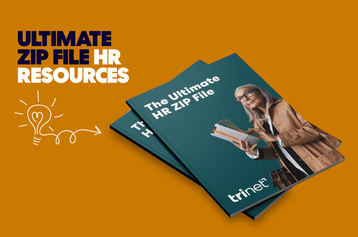
Table of contents
- 1.What is HR compliance?
- 2.HR compliance can cover:
- 3.What is HR’s role in compliance?
- 4.Common HR compliance issues HR departments face
- 5.Fair Labor Standards Act
- 6.Data security
- 7.Discrimination
- 8.Affordable Care Act
- 9.Harassment
To keep your business operating successfully, small business owners everywhere are responsible for remaining compliant with a host of rules and requirements on the local, state, federal, and industry levels. No easy feat! These responsibilities usually fall to HR, and cover everything from employment-related laws to worker safety to mandated business filings.
What is HR compliance?
HR is responsible for making sure the company meets its legal obligations when it comes to HR compliance, and sometimes outside of what is strictly considered HR.
HR compliance can cover:
Payroll
Risk and workplace safety
Hiring
Accommodations
Termination
What is HR’s role in compliance?
HR functions as the people center of a business but is also key to the compliance architecture of the company. While HR departments must remain compliant with all the rules and requirements pertaining to HR operations — like fair hiring practices — the department may also ensure compliance with other specific requirements that fall outside of traditional HR. Some of these requirements are:
Workplace safety requirements as defined by the Occupational Safety and Health Association (OSHA) and keeping up with the various worker safety legislative changes.
Data privacy and security laws and regulations, as applicable, like the General Data Protection Regulation (GDPR), the California Consumer Protection Act (CCPA), and HIPAA. HR is one of the functions that typically handles the most sensitive employee data.
General business compliance like Affordable Care Act reporting and quarterly and accurate payroll tax filings.
Like we said earlier, this is no easy feat — especially for small business owners. SBOs often lack the resources needed to hire a full HR department, but also don’t have the time to become experts themselves. Yet being out of compliance means your business may be at risk for hefty fines, liability, and damage to your reputation, which is all far more costly than investing in the resources to stay on top of HR compliance.
Being out of compliance means your business may be at risk for hefty fines, liability, and damage to your reputation, which is all far more costly than investing in the resources to stay on top of compliance.
Common HR compliance issues HR departments face
HR compliance is tricky because some requirements are easy to confidently meet, like paying state and federal minimum wage. Others are much more complex, like accurate employee classification. This makes it hard for small businesses to make sure they’re compliant with all the boxes they have to tick. Some of the most common issues that cause businesses to be out of compliance fall under the following laws, acts, and requirements.
Fair Labor Standards Act
Federal law establishes minimum wage, overtime pay, record keeping, and child labor standards for employees. HR is responsible for differentiating between exempt and nonexempt employees and tracking overtime pay. Class action lawsuits are commonly brought against businesses for violating FLSA.
Data security
Some laws such as the GDPR and CCPA may apply to employee data as well. Under the scope of those laws, HR may need to adapt its practices to be transparent about how employee data is collected, used and disclosed, and may be required to obtain permission to use employee data and have processes in place should employees withdraw permission.
Discrimination
Companies are legally barred from discrimination on the basis of race, color, religion, sex and national origin under Title VII of the Civil Rights Act. Other federal laws prohibit discrimination on the basis of age and disability. But beyond avoiding discrimination, smart businesses today are making diversity a major emphasis of their hiring processes and reaping impressive benefits. Also, it’s just the right thing to do.
Affordable Care Act
The ACA has a number of mandates that affect small businesses. Of note is providing a Summary of Benefits Coverage to all employees or risking facing a penalty for noncompliance.
Harassment
Harassment comes in a few forms, and they are all bad. Whether overt sexual harassment or jokes based on one’s religion, it’s HR’s responsibility to take an employee’s complaint seriously — or risk lawsuits, damage to the company’s standing, and employee morale.
© 2024 TriNet Group, Inc. All rights reserved. This communication is for informational purposes only, is not legal, tax or accounting advice, and is not an offer to sell, buy or procure insurance. TriNet is the single-employer sponsor of all its benefit plans, which does not include voluntary benefits that are not ERISA-covered group health insurance plans and enrollment is voluntary. Official plan documents always control and TriNet reserves the right to amend the benefit plans or change the offerings and deadlines.
This post may contain hyperlinks to websites operated by parties other than TriNet. Such hyperlinks are provided for reference only. TriNet does not control such web sites and is not responsible for their content. Inclusion of such hyperlinks on TriNet.com does not necessarily imply any endorsement of the material on such websites or association with their operators.

TriNet Team
Table of contents
- 1.What is HR compliance?
- 2.HR compliance can cover:
- 3.What is HR’s role in compliance?
- 4.Common HR compliance issues HR departments face
- 5.Fair Labor Standards Act
- 6.Data security
- 7.Discrimination
- 8.Affordable Care Act
- 9.Harassment



